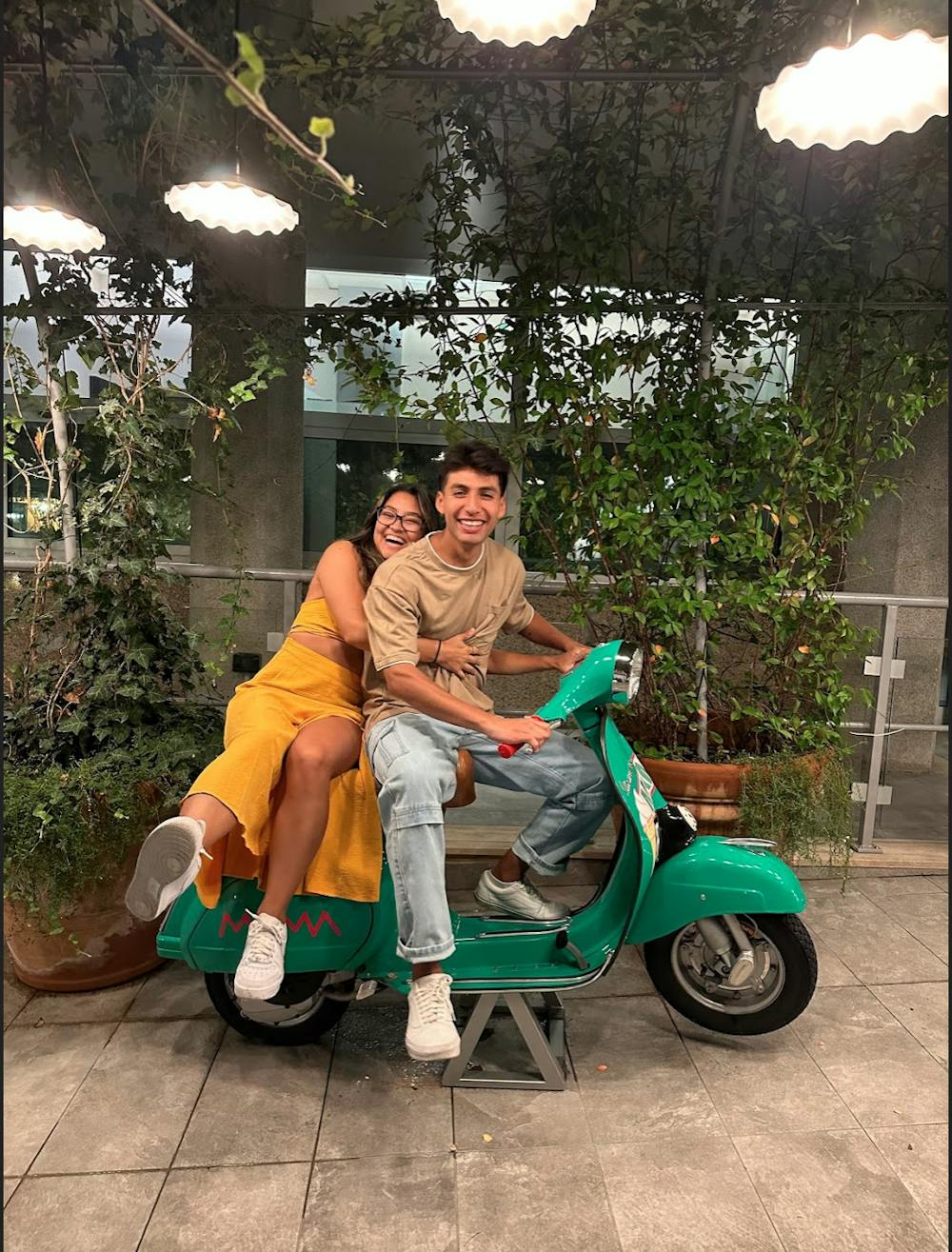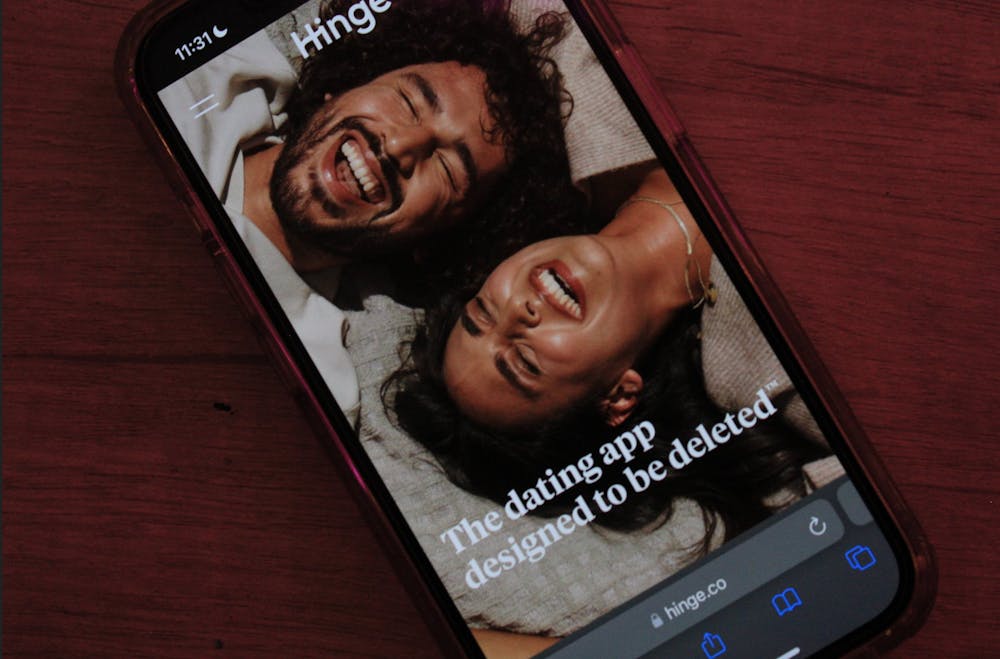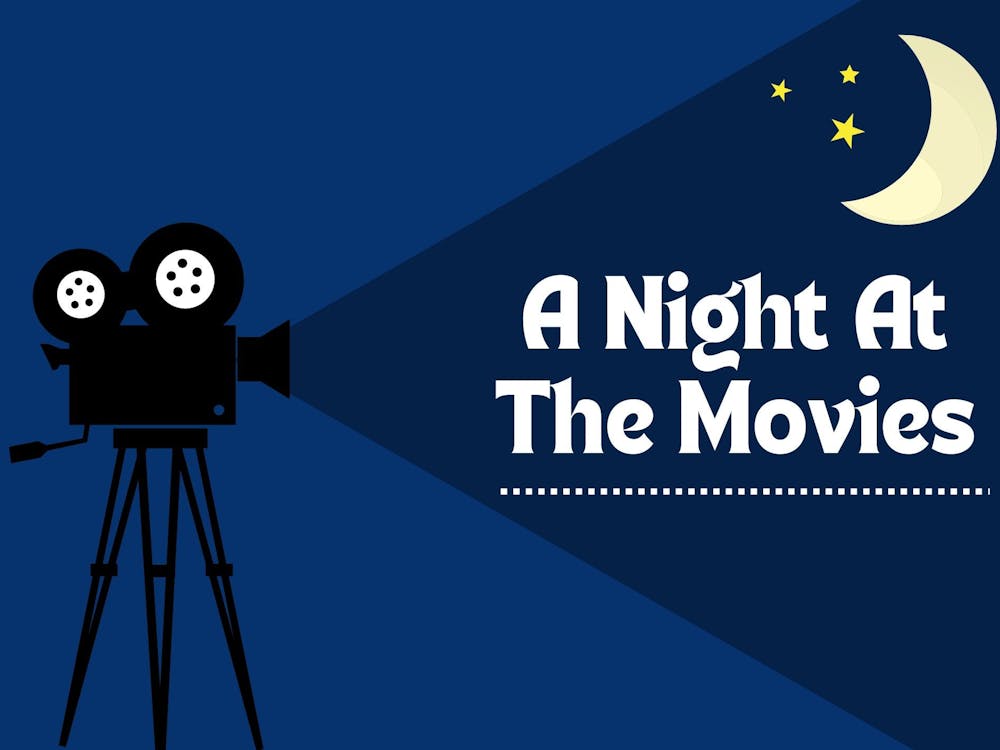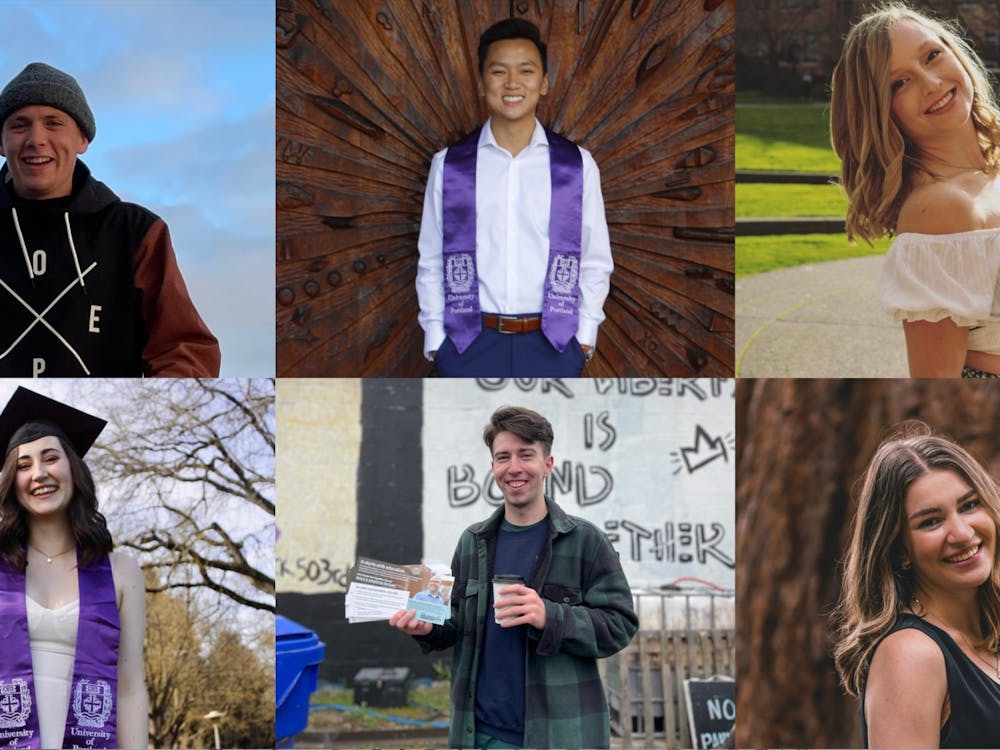As you unsuspectingly approach the automatic doors to the library, you look up briefly from your phone because you can see someone approaching you in your peripheral view. Immediately you lock eyes with the stranger, except, it’s not a stranger. It’s the girl you matched with on Hinge and neither of you have reached out yet.
From having to share a dorm room with at least one person, to countless group presentations needing collaboration on all ends, all we do as students is interact with one another. So why do we let dating apps dictate when we actually talk to one another?
In the age of modern technology, relationship building has become more accessible outside of the campus setting. With apps ranging from Tinder to Bumble, and from Grindr to Hinge, the possibilities for meeting a potential partner seem endless.
For senior mechanical engineering major, Jessica Yoshioka, the dating app, Hinge, is exactly what resulted in what is now her one year relationship with Concordia University graduate, Andy Baeza.

“On Hinge you can comment on profiles and I remember I was just swiping in the car and my friend saw the word nacho when his profile came up and thought his name was nacho, but it was an answer to a prompt,” Yoshioka said. “So after she said that, I swiped up on the nacho question and we started talking through there.”
Unlike apps such as Tinder — which is structured as a fast paced, swipe through profiles kind of app — Hinge offers its users the chance to answer prompts so that potential matches can get to know them better beyond their pictures.
Hinge advertises themselves as the dating app that is meant to be deleted, because unlike apps such as Tinder, Hinge offers its user prompts to which they can answer so that potential matches can get to know them better beyond their pictures.
For Yoshioka, that’s exactly why she leaned towards this app more than the others.
“[Hinge] had more prompts, and I wanted to not superficially know someone,” Yoshioka said. “I get to see what they’re interested in and they can post what they like, so I thought I could get a better gauge of the person.”
Despite dating apps being so prevalent among college campuses — Tinder even gives you the option to put what college you go to — the concern that being chronically online can hinder real, interpersonal relationships is a heavy one.
Often, what we see in rom-coms doesn’t imitate real life. Take “When Harry Met Sally” or “50 First Dates” for example. There’s a desire to have a “meet-cute” that is heavily depicted in the media — something that doesn’t seem possible to achieve through dating apps.
Research shows that 48% of 18-29 year olds have used dating apps or websites, yet there is still a stigma surrounding the usage of dating apps even on college campuses.
Over 10 UP students were asked to either comment on their personal experience using dating apps or to ask their own friends if they were comfortable sharing their experience with The Beacon and all subjects declined to comment.
Professor of communication and media Jeff Kerssen-Griep points out that this cultural phenomenon doesn’t actually stray too far away in regard to how we approach dating apps.
While meeting someone organically may seem less strategic than if you were to meet someone intentionally through a dating app, the concept stays the same.
“I think we've always been more strategic than we think we have,” Kerssen-Griep said. “… We've always put friends together with other friends ... I think the change has been that with the apps, we are obliged to sort of take on the strategizing. We have to be tactical, because that's what the app makes us do. Tell us these things about you, or we won't let you on our platform. So I think it's just an extension of what we've always done and not that different.”
While they can mimic our own in-person interactions, there are additional precautionary measures that students should take when using dating apps. Expanding the dating scene to online also expands the dangers we can be exposed to.
From catfishing to stalking, there are several aspects of online dating to remain cautious of.
On Jan. 25, the Univeristy of Portland’s Students Against Sexual Assault (SASA) held a dating app safety discussion. Board members went over how to be intentional when using dating apps, swiping safely, first date tips and other things to consider when interacting with others online.
“Whether you move the conversation to Snapchat or wherever, know how to block a contact on whatever you’re meeting to,” SASA secretary, Bella Hull said. “Utilize your social media, look them up … Most importantly, do what you’re comfortable with.”
Practicing internet safety while using dating apps is a good habit to form. Searching your matches up on social media platforms such as Instagram, or even Googling them can offer reassurance and reveal more about their character.
While the efficiency of dating apps is what makes it so attractive to its users — especially in such a fast paced environment — it’s important to remind ourselves that we should take our time when getting to know someone, especially when losing that immediate face-to-face interaction.
Referencing the social information processing theory (SIP), Kerssen-Griep emphasizes how we have to allot time to really get to know other people, especially when our interactions with them start online.
“The argument is that you can have the same kind of relating online as you do in person,” Kerssen-Griep said. “But when you're in person, you can kind of gulp it, right? These theorists say that it's more like you have to sip the relationship when it's online. And that just takes longer to get through the glass right to feel like I've got a good sense of who this person is. I can't just immediately inhale the relationship and be in it.”
Janea Melido is the Copy Editor for The Beacon. She can be reached at melido24@up.edu.









